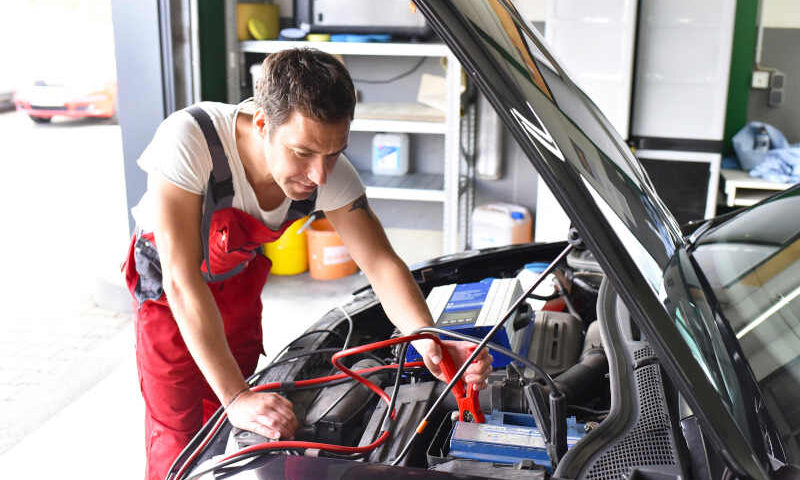6 Important Signs Your Car Battery Needs to Be Replaced

8 Causes of Check Engine Lights on in Cars and What to Do About Them
March 3, 2023
Top 5 Strategies for Preventing Your Car’s AC from Blowing Hot Air
May 6, 2023Your vehicle’s alternator is the primary component in charge of supplying it with electricity whenever the engine is engaged and turning. However, when the engine is turned off, that responsibility is taken exclusively on by the battery. There are a variety of issues that might arise with your vehicle if the battery is allowed to get too old or damaged. Let’s take a look at the six most obvious warning signals that it’s time to get to the auto shop to get a new battery for your vehicle.
Your Electronics is Misbehaving
Many automobile attachments require electrical power. This includes your dashboard, radio, headlights, air conditioner, windshield wipers, and other components of your vehicle. In the event that more than one of these malfunctions takes place when the engine is shut off, the battery is most likely to fault.
Battery life for automobiles typically ranges from three to five years until it’s time to replace them. Whether you think your battery is getting too old, you should check it often for symptoms of warping or corrosion to see if it has either. The dealership that is most convenient for you should be able to replace an old battery for you.
Your Car’s Engine Won’t Start
The inability to start your vehicle due to a dead battery is the issue that causes the greatest amount of inconvenience. This indicates that the battery in your vehicle does not have any power or is unable to send sufficient power to the ignition coils in some way. It’s also possible that the wiring or connectors are rusted or otherwise damaged in some way.
Early warning indications of a faltering battery are likely to present themselves well in advance of the point at which your engine completely refuses to start. When you turn the key, the engine will crank over in a lethargic manner. When the mornings are chilly, it will struggle more than usual.
Your Car Comes to an Unexpected Stop
Even though the alternator provides power to the ignition coils whenever the engine is running, a battery that is on its way out might nevertheless cause the engine to stall or have a rough idle. The reason for this is because an old battery requires a greater amount of energy to be drawn from the alternator, which in turn diverts power away from other electrical components, such as the ignition coils and spark plugs in the engine.
You Smell Sulfur
It is possible for the case of the battery to begin to warp and break as the battery ages or as it becomes damaged. Because of this, the battery acid will ultimately leak out, giving off a pungent sulfur stench that is comparable to that of rotten eggs. When driving, smelling anything like sulfur is never a good indicator; thus, if you smell it, you should immediately pull over and inspect your battery. Leaking battery acid has the potential to corrode other sections of the vehicle if it is not treated to.
Your Battery Has Developed a Warp
Be sure to check the shell of your battery for any signs of warping when you examine it. The walls of batteries ought to be completely straight and in the shape of a rectangle. If there is any swelling or warping, cracks will appear very quickly. A defective battery requires replacement immediately.
Your Terminals Have Been Ruined By Corrosion
It is important that there is no rust or corrosion on the metal terminals that are located at the top of a battery. If you observe only a very slight discoloration or rust developing, you may be able to clean it up using the appropriate cleaning materials. However, terminals that are severely corroded indicate that the battery should be replaced.


